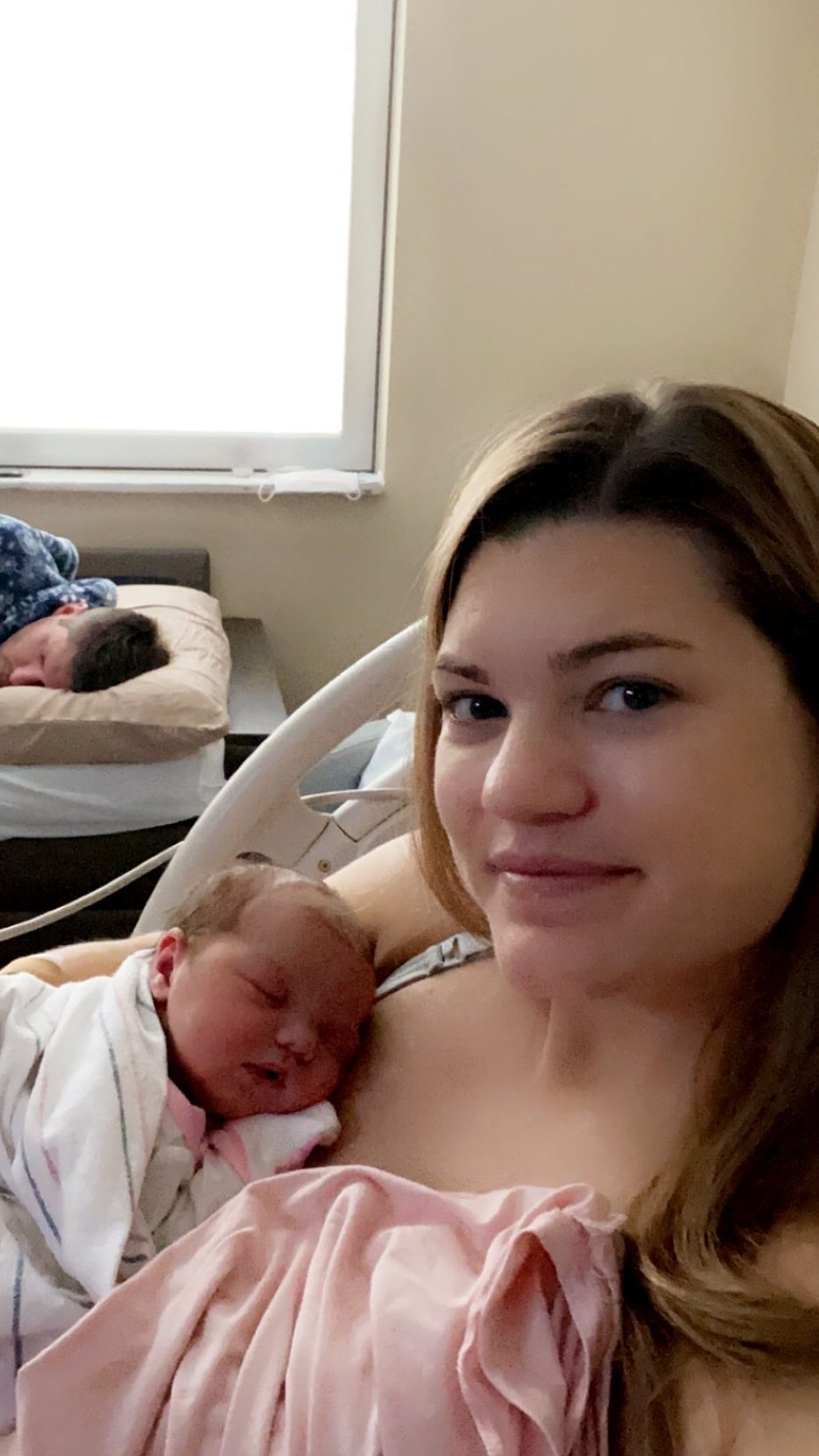There is a special part of postpartum where you spend 2-3 days in the hospital. This is so closely tied to the labor & delivery it should be described as part of the birth experience.

The hospital birth experience is incredibly common. I would love to write a post on a home birth experience, but I cannot speak from that viewpoint. So this is purely from the postpartum standpoint of while being in the hospital.
From the moment your baby is placed in your arms, it is very hard to think about anything else other than your baby. However what society forgets is that a vaginal or CS birth- is trauma to the body. Both emotional and physical.
There are multiple things that are left out the books about motherhood, especially about the process of being in the hospital. After the delivery of your baby, and the placenta there are some chain of events. The baby’s weight and length are recorded, and an Apgar test will be performed. Then the baby will be given to mama for skin to skin contact. (This is barring any immediate medical attention that might be needed for baby or mother in extenuating circumstances)
Skin to skin contact is considered an essential part of the bonding and breastfeeding process that should begin immediately after birth. I am not a breastfeeding expert, so please do not take that (impression) from anything I put in this blog. Breastfeeding is hard. Like, very hard. A lactation consultant is usually available in the hospital for an initial consult and education. They might come see you the first day, or the second. However L&D nurses can be incredibly helpful and informative on this matter as well, since they have extensive experience with it.
You will continue to have your IV as long as you need fluids and/or pain medication. If you have a catheter then that will remain in until you have sensation and functional capacity into your lower body. Once your epidural wears off, the nurses can assist in transfers (getting up and to a chair) or shifting around in bed if you need the help!
You can expect multiple tests to be performed on your infant on/off during your stay, purely to check in on his/hers health. They will do a hearing test, a pediatrician has to examine/clear them, and if you have a boy and opted for the circumcision – this will happen as well. This does NOT all happen at once. L&D units try to be very cognizant of giving you ample time with your baby, as well as the need for time with feedings.
An important thing to mention here for baby: they do give you a paper log to record feedings, wet or poo diapers. The nurses and pediatrician will take the recorded events and put them into the system. This is essential in determining if your baby is getting ample nutrition, staying hydrated, and having the first bowel movement of meconium.
For you mama, your MD should come in to see you the next day or before discharge at least. They will give you instructions for postpartum care and recommendations for the home. Your discharge nurse will also give you a speech and a folder of all the information since the likelihood you will remember it all is pretty low. (Sleep deprivation, birth trauma, emotional rollercoaster, you know- ect)
Some events that happen in the hospital that I wished I would have had more forewarning on would have been the bowel movement that needs to happen before you can be discharged (hello medication constipation) and the fundal massage. Which is a completely deceiving name for such a thing. There is nothing “massage-like” with this. The nurse or midwife comes in and says “Hey let me check your uterus, and I might need to do a fundal massage” and then it feels like they are elbowing your gut. A bit dramatic, but it’s NOT pleasant. They do this because even though the baby is OUT – your uterus is still enlarged. The uterine contractions will continue for some time, (strong in the immediate postpartum, but then they ease within 48 hours) and this is to help your uterus return to its normal size.
Aside from regular nurse visits, pediatrician, lactation consultant, your MD, and potentially your anesthesiologist coming in to check on you, that about sums up a hospital stay. They hospital now requires you to bring in the car seat for inspection so you can take your little bundle of cuteness home. The hospital does supply diapers, wipes, hats, and blankets. Most hospitals try very hard to have a good L&D unit that is tailored towards taking care of mama and baby.
Personally, my hospital stays were quite comfortable. All of my nurses (except one night nurse) were incredibly kind and thoughtful. They were also incredibly respectful of my wishes for feeding, skin to skin, and rooming in options. The second baby (Izabel) caused more pain and difficulty with transfers in the hospital for me. So whenever I asked for help getting up to move to the recliner, the nurses were very kind and helpful.
Each hospital has their own unique rules, regulations, options, and room designs. I think it would be important for you to look into the details of your L&D unit before it is time to give birth so that you are prepared for what your stay is going to be like.
Knowledge is power. The more informed we can be as women, the more empowered we can feel when faced with decisions.